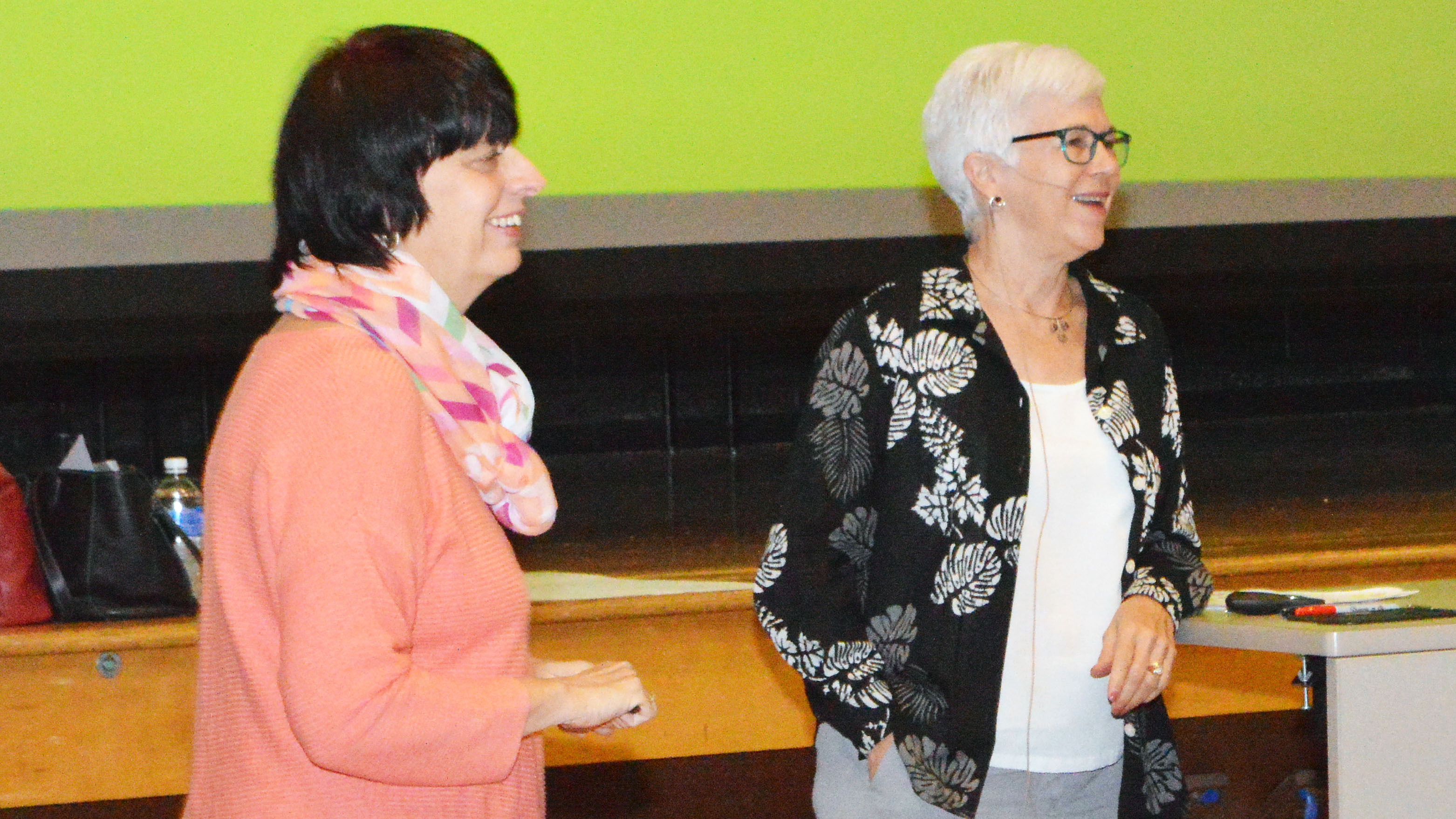
The Art of Becoming a Better Mentor and Mentee workshops by the local chapter of the Association for Women in Science drew plenty of women and a few men, too, to both UNL campuses last week.
What participants learned? Mentoring is hard. But it’s good for you, too, and worth the investment of time and energy.
Donna Dean, executive consultant for AWIS and retired senior federal executive for the National Institutes of Health, and Cynthia Simpson, the chief business development officer for AWIS, led the workshops, which were tailored to the crowd.
The interactive workshops, open to UNL faculty, staff and students, as well as the community, were sponsored by the School of Natural Resources and other UNL departments and colleges in the STEM fields.
The program was meant to build an appreciation for mentoring, as well as give people the tools and techniques needed to be good mentors or mentees, and it provided strategies for beginning and sustaining mentoring programs.
Mentoring, Dean and Simpson emphasized, often is about more than a career. It can encompass a person’s home life, values and stressors, as well.
“It’s important to always keep the lines of communication open,” Simpson said. “We tend to overestimate how much we are communicating. It’s called signal amplification bias. We assume 80 percent of what we say is understood.”
That’s rarely the case.
Culture, background and experiences all play a role in how someone interprets information he or she hears. Types of communication – written, verbal and nonverbal – do as well.
Seven percent of communication is oral, Simpson said, 38 percent is paralanguage and 55 percent is nonverbal cues.
“When we talk, the importance of what we say is weighed,” she said, and it’s important to put your best foot forward. “First impressions often are the only ones you ever get to make.”
Communication tips
When it comes to oral communication, Simpson said mentors and mentees should always:
• Be concise.
• Choose effective language over precision.
• Be assertive, not directive.
• Use professional language over social language.
• Match the medium to the message.
• Check in to make sure people are hearing what you’re saying.
“What we see and hear can only be seen through your own eyes,” Dean said. “Remember, where they are, they are looking at things with a different perspective.”
Everyone has implicit or inherit biases, she added, and it’s both a mentor’s and mentee’s job to be aware of what those are and not share or encourage those biases in others. (To test your biases, click here.
Deciding whether to mentor
“Mentoring comes with responsibilities,” Simpson said. “Your job is to step aside to let your mentee step forward. You are not making a clone. It is your job to help them with career or professional development.”
This shift has occurred over the last couple of decades, but what hasn’t is the need for mentees to keep enhancing their skills and abilities.
“You need to help them recognize opportunities,” Dean said. “This means expanding their skills, growing their network and maybe pointing out the obvious.”
When possible, mentors should share their mistakes and how they recovered. They also need to know when to move on.
“Maybe you’ve given everything you can,” Dean said. “Maybe your mentee needs someone else to reach their step.”
Do’s and Don’ts of mentoring
To be a good mentor, Dean and Simpson give these tips:
• Speak less, listen more.
• Be yourself (thoughtfully).
• Never embarrass your colleagues.
• Have an appropriate sense of humor.
• Recognize that your actions whether good or bad will have consequences.
• See the unwritten and inside rules.
Mentors are not miracle workers
All that being said, mentors are not miracle workers, Dean said. “One mentor cannot meet all your needs. It’s OK to have a board of directors of mentors.”
But before you name people to your board, Dean recommends:
• Getting to know someone before asking him or her to be a mentor. Don’t rush into it.
• Communicate specifics.
• Handle criticism. “It’s not mean,” Dean said. “We want you to do better.”
• Keep expectations realistic.
• Be willing to ask for what you need.
• Remember the relationship, much like the pursuit of a doctorate, is an evolution. It will change over time, and that’s OK.
• And finally, it’s your life and your career. Take control.
Miss the workshop?
The workshops were filmed and now are available online. Watch here.
Funding for the mentor/mentee workshops was provided by the Office of The Vice Chancellor of Academic Affairs; the Office of Research & Economic Development; the Institute of Agriculture and Natural Resources; the School of Biological Sciences; the School of Natural Resources; and the following departments: Agronomy and Horticulture, Biochemistry, Biological Systems Engineering, Chemistry, Civil Engineering, Computer Science & Engineering, Earth & Atmospheric Sciences, Electrical & Computer Engineering, Entomology, Food Science and Technology, Physics, and Statistics.
AWIS is the largest multi-discipline organization for women in science, technology, engineering and mathematics. Its goal is to achieve equity and full participation of women in all disciplines and across all employment sectors.
— Shawna Richter-Ryerson, Natural Resources
Story updated Oct. 24, 2016.
More details at: http://snr.unl.edu